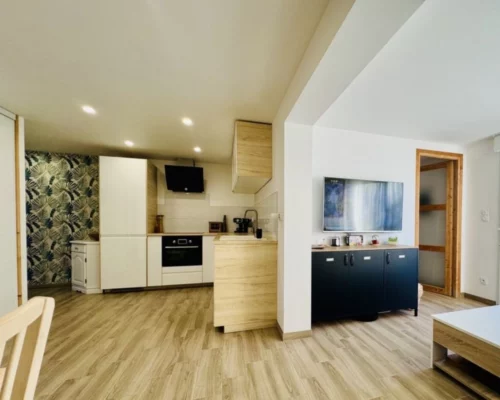Primary Education in France: Court of Auditors Sounds the Alarm and Calls for a Comprehensive Overhaul
In a report published this Tuesday, May 20, the French Court of Auditors delivers a damning assessment of the state of primary education in France. Titled “Primary Education: An Organization Misaligned with Students’ Needs”, the report highlights a widespread decline in academic achievement, growing social inequalities, and a system deemed inefficient despite increasing financial investment.
“Unacceptable” Academic Levels and Widening Social Inequalities
The report points to stagnating student performance since the early 2000s, especially in French and mathematics. Nearly one in three sixth-grade students struggles with reading, and one in four with math. These troubling figures are compounded by a widening achievement gap—nearly 30%—between children of white-collar professionals and those from working-class backgrounds, despite measures like smaller class sizes.
While education spending in France reached €52 billion in 2022 (2% of GDP), the Court notes that the country still invests less in elementary education than most OECD nations. This rise in spending contrasts with a steady demographic decline: 6.3 million pupils in 2024 compared to 7.1 million in 1972, with projections of 350,000 fewer students by 2028.
An Outdated School Structure
The current school week structure comes under sharp criticism. The four-day week, adopted by 85% of municipalities since 2018, is considered “harmful” to children’s biological rhythms due to extended weekends. The Court laments that the return to a four-and-a-half-day week was abandoned without proper evaluation, even though five full days remain the OECD norm—making the four-day week a uniquely French practice.
Governance Reform and Adapting to Demographic Shifts
With declining student numbers, the Court calls for a major restructuring of school organization, especially in rural areas. It recommends expanding intercommunal school groupings (known as RPI) and fostering shared resources among municipalities through multi-year agreements. Very small schools—those with two classes or fewer—are seen as limiting educational quality.
School governance is also under scrutiny. The Court suggests enhancing and professionalizing the role of school principals, giving them broader responsibilities in pedagogy and partnerships with local stakeholders. It recommends implementing performance contracts between school heads and regional education authorities.
Key Levers: Teacher Placement, Training, and Digital Tools
To address recruitment challenges, particularly in underserved areas, the report recommends assigning teachers at the departmental level rather than by academic region. It also advocates for a more attractive teacher transfer system to encourage mobility. In terms of teaching quality, it urges better training—especially in the use of digital tools to support learning.
An Opportunity in a Time of Transition
Finally, the Court encourages policymakers to seize the demographic downturn as a chance to rethink the public school model: resizing school facilities, integrating sustainability into school infrastructure, and better coordinating school, extracurricular, and family time. These themes are set to be addressed in the upcoming Citizens’ Convention on “Children’s Time,” announced by President Emmanuel Macron and scheduled to begin on June 20.

Citroen DS5 2.0 HDi Hybrid4 SportChic
75 € per dayPas-de-Calais, Nord-Pas-de-Calais, Beaurains 62217
Flat Duplex 3 rooms Loudenvielle 65510
190€ per nightMidi-Pyrénées, Hautes-Pyrénées (65), Loudenvielle 65510

Motobécane city bike
25€ per dayRhône (69), Rhône-Alpes, Lyon 69000, Lyon 6ème Arrondissement
BAYLINER VR5 ski boat - perfect condition / fresh water
170€ per night
Rhône-Alpes, Haute-Savoie (74), Doussard 74210
Sailing boat Dufour 34 (Larmor Plage) Lorient
380€ per dayBrittany, Morbihan (56), Lorient 56100
Flat 3 rooms Agde 34300
165€ per nightLanguedoc-Roussillon, Hérault (34), Agde 34300





